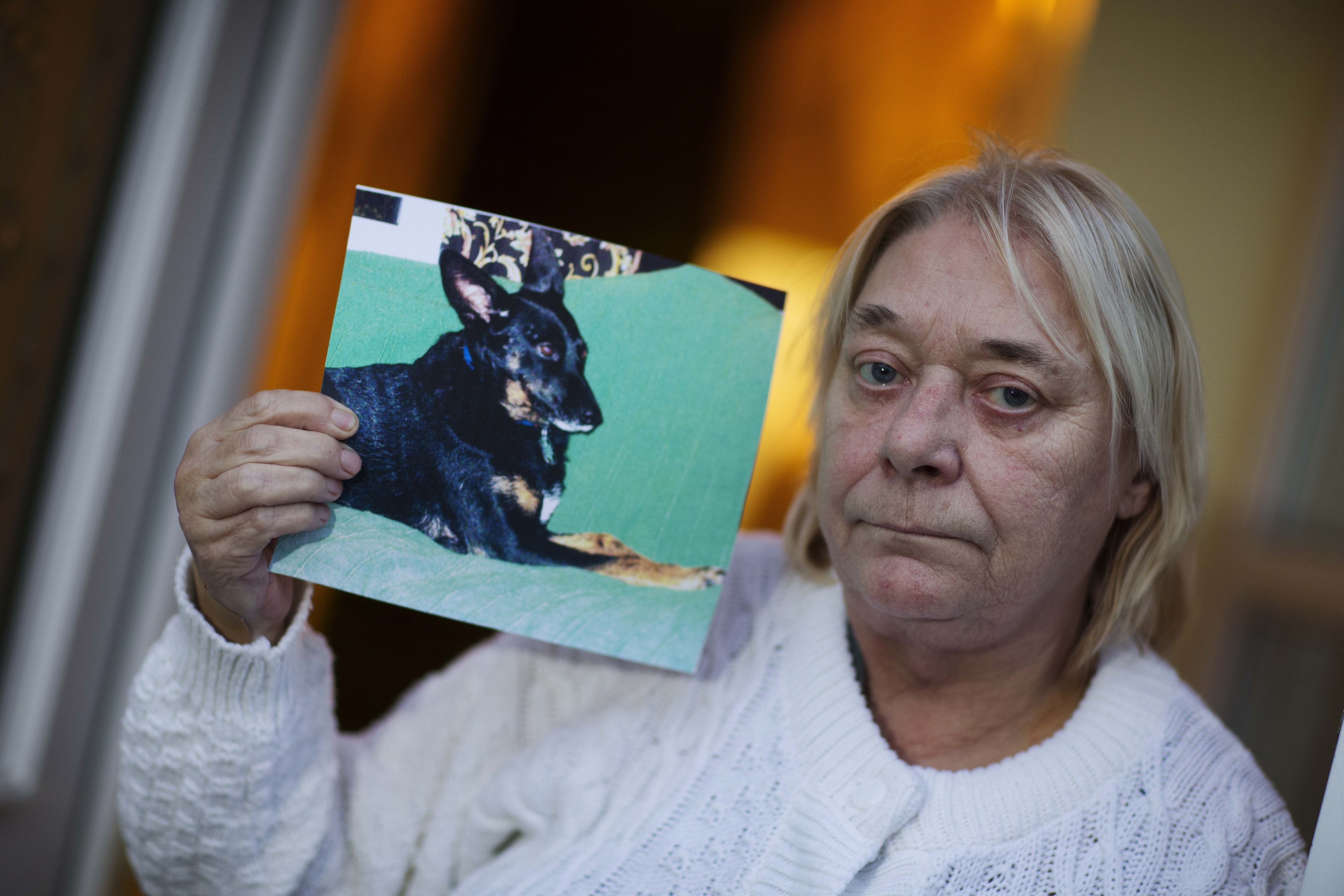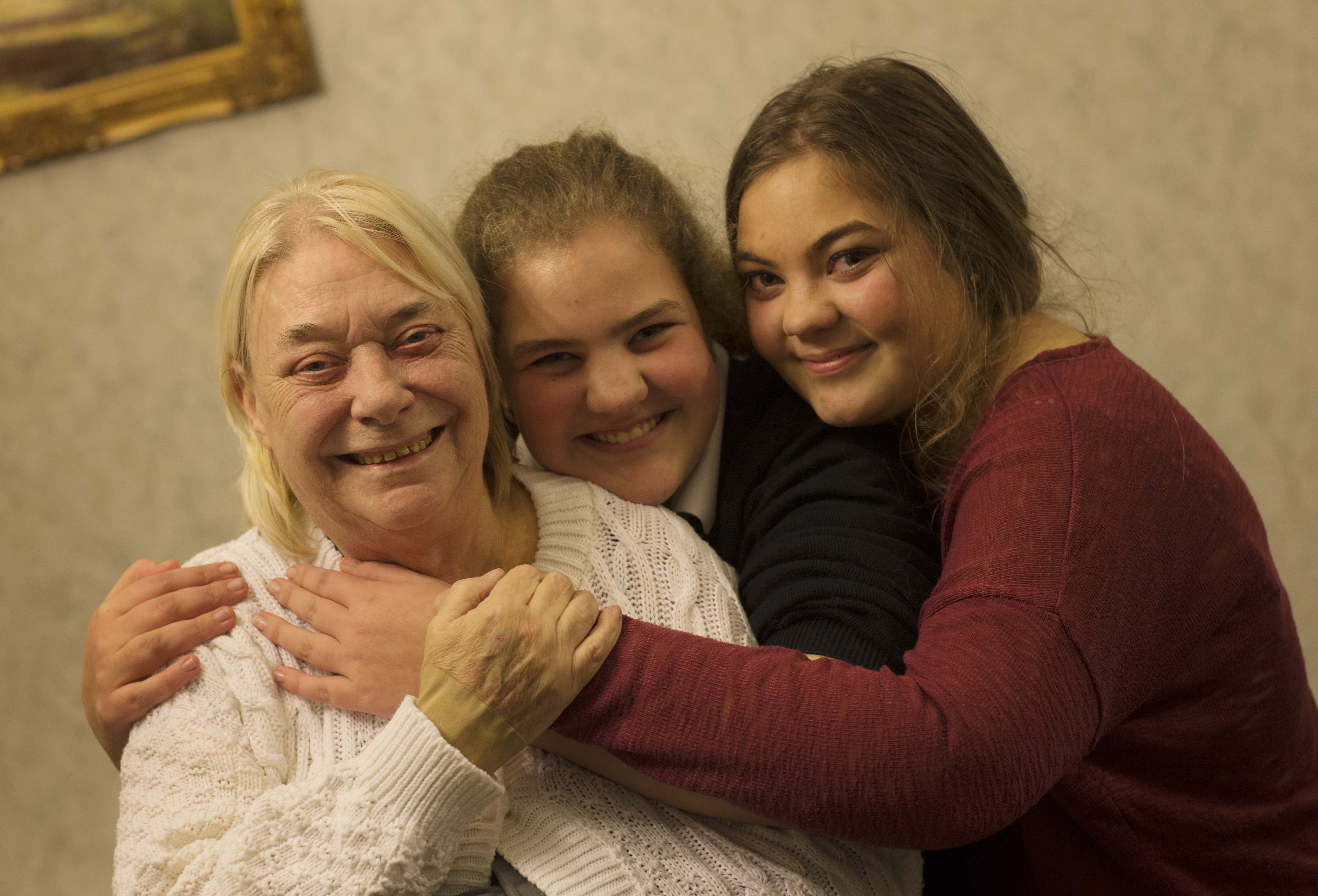Heather’s warning: passive smoking killed my beloved pet

A North East pet-lover who lost her dog four years ago to lung cancer is today issuing a warning about the deadly risks of second-hand smoke.
Heather Goddard, from South East Northumberland, was left devastated when X-rays showed that her beloved pet dog, Clover, had dark spots on her lungs.
The 62-year-old grandmother was horrified when the vet told her that the cocktail of toxic chemicals found in her second-hand smoke were likely to blame. Clover, an eight-year-old cross-breed had to be put down.
With thousands of dogs, cats and other household pets still exposed to inhaling tobacco fumes in the region, Fresh and leading veterinary charity PDSA, have joined forces urging people to protect their loved-ones from smoke – whether children or pets – by quitting.
Heather quit smoking last year after developing COPD (chronic obstructive pulmonary disease), and regrets ever exposing her family to years of smoking in the house and car.
She said: “It brings a tear to my eye just thinking about the damage my smoking was doing to those around me. Before I quit, I never thought twice about smoking around my grandchildren or my pets.
“Clover was extra special because she was a rescue dog. She had a loveable personality and was very laid back. One day she just couldn’t walk and when we took her to the vets, the X-rays showed that she had dark spots on her lungs – there was nothing we could do. I could sense that she didn’t want to be put to sleep which was heart-breaking.
“It was a really tough time but losing Clover four years ago to lung cancer likely caused by smoking, just shows how damaging breathing in second-hand smoke can be. Looking back, it’s still terribly upsetting to think what my smoking must’ve been doing to my grandchildren’s health. If my story stops one more dog, cat or other pet dying from the effects of second-hand smoke then it’s been worth telling.
“My family are all so proud of me for quitting. Although I have COPD, I feel a lot healthier for stopping. It really is amazing the difference quitting smoking can make to your life. My grandchildren always say how happy they are that I no longer smell like smoke, but like a proper grandma which is lovely to hear.”
While quitting for the sake of children’s health can be motivating for people who smoke, a study in America found a third of smokers would be motivated to try to quit if they thought smoking was harming their animal.
PDSA Veterinary Surgeon, Vicki Larkham, said: “The effects of second-hand smoke on humans are well known, but many people don’t realise their smoking may also be damaging their pet’s health.
“When people smoke in their home or car, everyone around – both people and pets – inhale the toxic fumes. And your pets don’t just inhale smoke; the particles also get trapped in their fur and ingested when they groom themselves.
“Studies have shown that animals choose to avoid toxic fumes in their living environment, so day-to-day life may be very unpleasant for a pet living in a smoker’s home.
“As with people, the effects of second-hand smoke eventually take their toll on our pets and there are associations between tobacco smoke and a number of diseases in pets, including asthma and chronic bronchitis. Exposure to tobacco smoke also increases the risk of cancer, with cats in smoking households being twice as likely to develop a type of cancer called feline lymphoma and dogs being prone to nasal tumours.
“So, next time your cat cuddles up to you on the sofa or your dog brings his ball for you to throw, please think about the impact your smoking is having on their health. If giving up is not an option, keep rooms well ventilated or only smoke outside.”
Lisa Surtees, Acting Director of Fresh said: “This may come as a real surprise to many pet owners who smoke, but the horrible poisons found in second-hand smoke can have very upsetting consequences.
“Our pets are part of the family and Heather’s story is a reminder that second-hand smoke can cause harm to those we love. Children are also vulnerable to the effects of breathing in tobacco smoke, leading to short term health problems like asthma and glue-ear, headaches, coughs and nausea. Even opening a window in the car or smoking in another room in the house does not protect those around you from the poisons in tobacco smoke.”
Public Health England recently warned smokers about the risks of children breathing in toxic, second-hand smoke in the home and the car.
All tobacco smoke contains thousands of chemicals such as tar, arsenic and cyanide and around 70 chemicals known to cause cancer. Passive smoking is a cause of lung cancer and heart disease in adult non-smokers, and a cause of respiratory disease, cot death, middle ear infections and asthma attacks in children . Exposing children to second-hand smoke is also linked to a heightened risk of cot death and meningitis , and may even cause lasting damage to the arteries, increasing children’s risk of heart problems in later life.
The 2010 Royal College of Physicians report Passive Smoking and Children revealed that passive smoking results in 300,000 GP appointments and 10,000 hospital visits for children a year nationally , which breaks down as 13,000 GP consultations and hospital admissions every year in the North East.

Smoking and Pets – the facts
Recent findings have revealed that even limited exposure to tobacco smoke can more than double a cat’s risk of feline malignant lymphoma , one of the commonest types of cancer seen in cats.
Other studies found an association between exposure to secondhand smoke and nasal cancer in dogs – birds and rabbits are also risk.
Quitting smoking can be so much easier with help from a local NHS Stop Smoking Service. To take the first step, phone the NHS Helpline 0800 012 1612, or click on http://smokefree.nhs.uk/. Your GP or pharmacist can also help.
